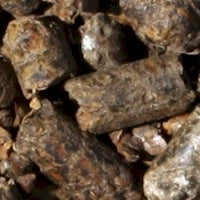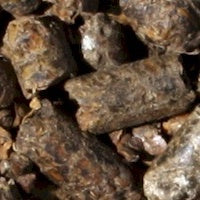Citrus Pellets
Citrus Pellets
Couldn't load pickup availability
Similar in digestible fibre levels, energy and fermenting sugar to sugar beet pulp, but slightly lower in protein. The fibre has a buffering capacity in the rumen. Citrus pulp can contain oranges, lemons, limes, grapefruit, tangerines etc. Orange citrus is recognised as the best as it is more palatable, has a better ph and contains more suitable acids which, in turn, minimise rumen upsets. Ideal for all ruminants and the pleasant aroma encourages intake.
Country of origins
USA, Brazil
Factory Process
A by-product obtained by pressing citrus fruits citrus sap during the production of citrus juice
Statutory Declaration
Fibre 13% Max
Other Requirements
Dioxin (sum of PCDD and PCDF) maximum 500 pg 1 - TEQ /kg. Will comply with relevant EU & UK legislation

Typical Analysis
| Dry Matter | 90 |
| Crude Protein | 6.5 |
| DCP | 3.7 |
| ME | 12.2 |
| Crude Fibre | 14 |
| Oil (EE) | 2.6 |
| Ash | 6.5 |
| NCGD | 91 |
| NDF | 37 |
| Starch | 0.2 |
| Sugar | 25.5 |
| Starch & Sugars | 25.7 |
| FME | 11.6 |
| Salt | 0.1 |
| Calcium | 1.6 |
| Total Phos | 0.1 |
| Av Phos | 0.03 |
| Magnesium | 0.2 |
| Potassium | 1.2 |
| Sodium | 0.05 |
Recommended feeding
(per head / day)
Limits to Usage
Product should not be added or removed quickly from a ration as it may cause refusal. Poor calcium to phosphorus ratio.
Physical Properties
Storage / Processing
References / further reading
Disclaimer
Feeding rates are estimates, and other factors, such as animal health and environment, can have a greater impact on how animals perform. There is no guarantee that animals will perform as expected if fed the suggested rates. Rations should be balanced to provide enough energy and protein for animals, and they should include enough forage to keep the rumen healthy. Animals also need access to fresh water at all times.
- Choosing a selection results in a full page refresh.
- Opens in a new window.
